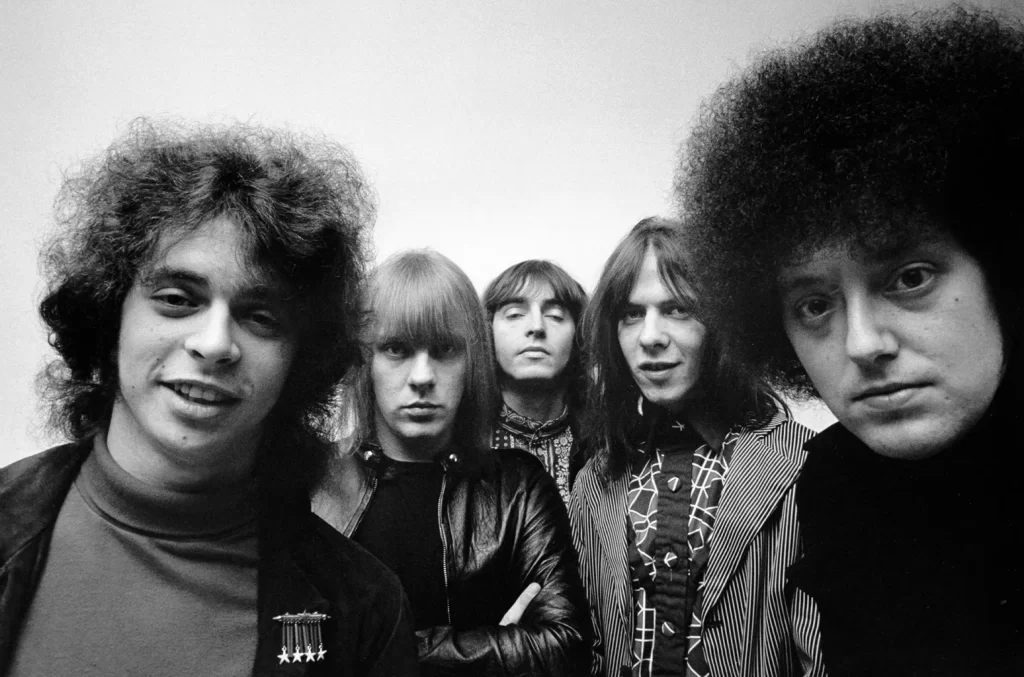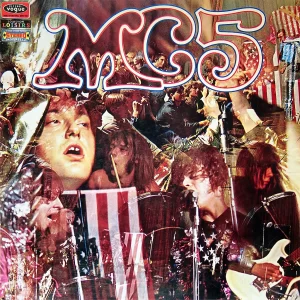
Emerging from the vibrant music scene of 1960s Detroit, MC5 left an indelible mark on the landscape of rock music, influencing generations to come and paving the way for punk. As their new album Heavy Lifting is released, the band’s transformative role in music and culture is celebrated, albeit with a bittersweet note following the recent passing of key founding members Wayne Kramer and Dennis Thompson.
Detroit has long been a melting pot of musical innovation, giving rise to genres ranging from Motown to techno. While Motown defined the city’s sound in the 1960s, it was MC5 that captured its more rebellious spirit. Inducted into the Rock and Roll Hall of Fame, the band has returned after more than five decades with Heavy Lifting and a new oral biography, MC5: An Oral Biography of Rock’s Most Revolutionary Band.
MC5’s influence stretches far and wide, embraced by a diverse array of artists from Motörhead to The Clash. Their unique blend of hard rock, blues, free jazz, and psychedelic elements earned them the label “proto-punk,” suggesting they were a precursor to the punk movement. Tom Morello of Rage Against the Machine noted that the band “basically invented punk rock,” underscoring their revolutionary ethos.

Musician and producer Don Was, who witnessed MC5’s electrifying performances, describes the experience as “jaw-dropping.” Growing up in Detroit, he recalls the city as a cultural tapestry shaped by a post-war influx of workers from various backgrounds. This rich mix fostered an original sound that permeated the music of the era. “The music reflects that basic honesty,” Was explains, pointing to figures like John Lee Hooker as epitomes of Detroit’s soulful, raw sound.
MC5’s formation in 1963 was a response to both the artistic vibrancy and the socio-political upheavals of the time. Their sound evolved from a tight local cover band into a force that encapsulated the tumult of the 1960s. The band’s leftist leanings and involvement with countercultural movements, including their support for the Black Panther Party, positioned them as both a musical and political force.

Brad Tolinski, co-author of their biography, articulates how MC5 mirrored the turbulent realities of their environment. While Motown symbolized Detroit’s dreams, MC5 resonated with its gritty truths, using music as a medium for protest. Their lyrics addressed issues such as the Vietnam War and civil rights, turning societal turmoil into a raw, dynamic art form.
Their groundbreaking debut album, Kick Out the Jams, released in 1969, remains a landmark in rock history. Not only is it celebrated as one of the greatest live albums, but it also captures the essence of a new kind of rock ‘n’ roll. Its explosive energy is reflected in tracks like the title song, where vocalist Rob Tyner famously declares, “Right now, it’s time to… kick out the jams, motherfucker!” This boldness resulted in controversy and backlash, including the album’s rejection by major retailers, yet it solidified the band’s defiance.
Despite facing internal strife, drug problems, and the pressures of fame, MC5’s legacy endured. The band broke up in the early 1970s but reunited in the 1990s to honor Tyner after his passing. Their influence continued to grow, inspiring artists across various genres.

Kramer, Thompson, and bassist Michael Davis later collaborated on tours, performing for a new generation eager to experience the raw power of MC5. Don Was, who produced Heavy Lifting, believes the album captures the band’s original spirit. “I’m proud of Wayne. He went out in top form. I think Heavy Lifting is the best record he made,” he asserts.
Tragically, the recent losses of several founding members cast a shadow over their resurgence. Kramer’s unexpected death from pancreatic cancer has left a profound impact on fans and collaborators. Nevertheless, the band’s revolutionary spirit lives on, as evidenced by their continued relevance in today’s music scene.
As Tolinski aptly states, MC5 was not just a band but a movement: “They pioneered the sound of heavy metal and the defiant attitude of punk rock.” Their legacy remains a vital part of rock history, encapsulating the true essence of rebellion and innovation. “Their legacy needs to be elevated,” Was insists. “They were the most revolutionary, radical, and rebellious of all groups.” As Heavy Lifting hits the shelves, it serves as a fitting tribute to a band that forever changed the face of music.








